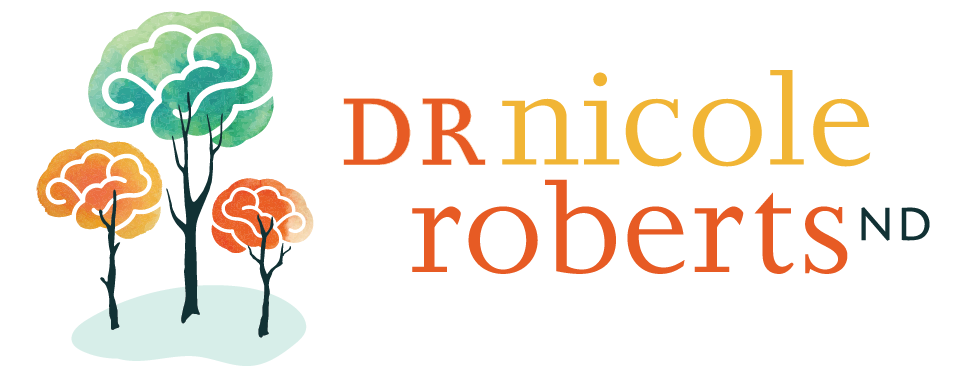Experiencing Anxiety Post-Concussion
It is important to be aware of post-concussion risk factors. As seen in the last article, an individual with a history of concussion is more prone to different conditions. In this article, we will be discussing anxiety post-concussion. A meta-analysis completed in 2016 which pooled the data from 34 different studies looked at the risk factors for anxiety post-concussion. It was found that the prevalence of anxiety in the first year after sustaining a traumatic brain injury is 21% and the long term prevalence is 36%. This meta-analysis also showed that those who were at higher risk of having anxiety after a traumatic brain injury included females, those who had a previous history of mental health concerns and those who were unemployed.1
Let’s talk about what actually happens to the brain during a concussion.
At the onset of a concussion, the brain undergoes a cascade of different events which affects its physiology and metabolic function. Ionic changes at the level of the cellular membrane involving calcium and potassium creates an environment of hypermetabolism and hyperglycolysis as it attempts to rebalance the cell membrane potential. During this phase, higher amounts of lactic acid is generated, Magnesium becomes depleted which affects the generation of ATP in the brain, and more free radicals are generated leading to more excitation and inflammation. The lactic acid in the brain renders neurons more susceptible to secondary injury. After this initial phase of hyperglycolysis, within 24 hours the brain’s use of glucose decreases and this can last up until 2-4 weeks. Hypoglycolysis in the brain can prevent it from meeting its energy demands. Some research suggests that this may be the cause of cognitive deficits seen post-concussion.2
Neurotransmitters are chemicals that the brain uses to communicate with different parts of itself, and with the rest of the body. After sustaining a concussion, changes to these neurotransmitters and their biochemical pathways have been found. The glutamine pathway, adrenergic and choline pathways all have been found to be affected. These can be detrimental for cognition and memory, both of which can possibly be affected in the long term. Glutamate in particular spikes for 24 hours after a severe traumatic brain injury and contributes to the unstable membrane potential involving calcium and potassium mentioned previously. Glutamate is an excitatory neurotransmitter and is stimulating to the brain. It also works as a precursor to GABA (gamma aminobutyric acid), an inhibitory neurotransmitter which helps us to relax. At at time when glutamate is too high and GABA is too low, this imbalance is what contributes to an anxious state. An imbalance in these two neurotransmitters continue to be seen up to 4 months post-concussion. 3
The other neurotransmitter that is involved in post-TBI anxiety is serotonin. Serotonin is known as our “happy chemical.” It contributes to feelings of happiness and well-being. After a concussion, the pathways that create serotonin are disrupted which is caused by anatomical changes as well as a depletion in magnesium which is needed for serotonin production.4 These changes in serotonin are also linked in with the gut. The gut-brain axis involves the hypothalamus, insular cortex and cingulate cortex which link with the gut through the vagus nerve and nucleus solitarius.
We know from recent research that the gut communicates with the brain and the brain communicates with the gut. Studies have shown that both dysbiosis in the gut and inflammation in the brain can contribute to an anxious mood. Furthermore, these studies have also shown that replenishing the gut with healthy flora can diminish an anxious mood.5 This can have implications on those with anxiety post concussion. Supplementation with an appropriate probiotic product can be useful in alleviating these symptoms. Your Naturopathic Doctor can help you determine which one is right for you. It is also important to be aware of any changes to an individual’s mood after sustaining a concussion because anxiety has such a high prevalence after concussion. Sharing your feelings with your support system and actively seeking out help can be immensely important in your healing. Maintaining a diet of less refined sugars and avoiding any foods you are sensitive to can help to limit the amount of inflammation in your gut while increasing the amount of healthy fats consumed can work to decrease inflammation.
As a quick review, this is a list of the treatments we may set up for our Post-Concussion patients depending on their needs:
Dietary review and meal planning
Restoring gut health and a healthy microbiome
Reducing oxidative stress and systemic inflammatory loads
Nebulized Glutathione: Learn more about what Glutathione therapy can do HERE
Methylation and other biochemical pathway support
Constitutional Acupuncture, Electromstimulation and Scalp Acupuncture
Return to play guidelines in conjunction with other specialists
Referrals to specialized physiotherapists for ocular therapies
Homeopathic support (while homeopathy is not our main modality, we find it works very well in this patient population!)
Anti-inflammatory, pro-neurological development support via supplementation
Lifestyle management to reduce stress and make things simpler (taking a load off the noggin)
If you are interested in a consult with us, check out our booking page for more information!
References
Annemieke C. Scholten, Juanita A. Haagsma, Maryse C. Cnossen, Miranda Olff, Ed F. van Beeck, and Suzanne Polinder.Journal of Neurotrauma.Nov 2016.ahead of printhttp://doi.org/10.1089/neu.2015.4252
Giza CC, Hovda DA. The Neurometabolic Cascade of Concussion. Journal of Athletic Training. 2001;36(3):228-235.
Guerriero RM, Giza CC, Rotenberg A. Glutamate and GABA imbalance following traumatic brain injury. Current neurology and neuroscience reports. 2015;15(5):27. doi:10.1007/s11910-015-0545-1.
Yue JK, Burke JF, Upadhyayula PS, et al. Selective Serotonin Reuptake Inhibitors for Treating Neurocognitive and Neuropsychiatric Disorders Following Traumatic Brain Injury: An Evaluation of Current Evidence. Vera Rojas JH, ed. Brain Sciences. 2017;7(8):93. doi:10.3390/brainsci7080093.
Clapp M, Aurora N, Herrera L, Bhatia M, Wilen E, Wakefield S. Gut microbiota’s effect on mental health: The gut-brain axis. Clinics and Practice. 2017;7(4):987. doi:10.4081/cp.2017.987.
